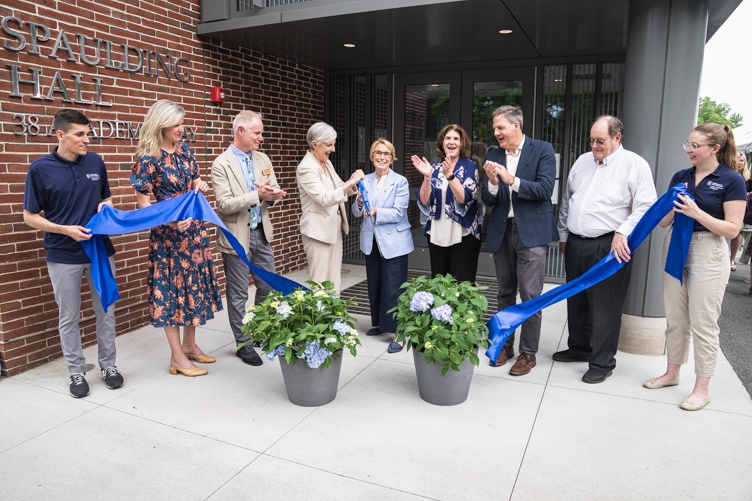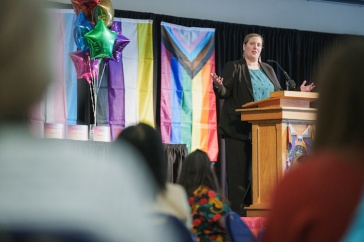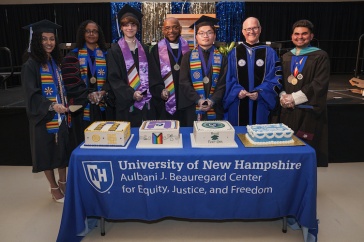
UNH celebrated the completion of the $95.5 million expansion and renovation of Spaulding Hall — the largest capital project in the university’s history — with a ribbon cutting and reception event June 6.
The Spaulding Biosciences Project kicked off in 2019 and included a 47,000-square-foot addition to Spaulding Hall, UNH’s biosciences building, followed by a renovation of the original 83,000-square-foot structure. Construction on the project wrapped up in June 2024.

state-of-the-art equipment and technology.
The unveiling celebration for the renovated space included remarks from UNH President Elizabeth Chilton and was attended by former New Hampshire Gov. Chris Sununu and U.S. Sen. Maggie Hassan.
The updated Spaulding Hall includes specialized research neighborhoods, a cutting-edge aquatic research core supported by both freshwater and saltwater laboratories that include giant tanks and living streams, and a new bioreactor core for work with mammalian cell cultures.
The building also houses state-of-the-art teaching labs and expanded study areas and is home to a co-located area for UNH’s natural history collections.
“With these upgrades, our students, faculty and researchers will be even better equipped to tackle the pressing challenges of our time — from improving human well-being to protecting ecosystem health and everything in between,” Chilton said at the event. “This building is more than bricks and mortar — it’s a launchpad for discovery and real-world impact.”
Additional resources in the updated space include a dedicated autoclave and glass wash facility for the sterilization of supplies used in teaching and research laboratories and freezer farms throughout the building offering ultra-low cold storage units that support the preservation of cell lines.
The work undertaken by College of Life Sciences and Agriculture (COLSA) faculty and graduates in the biological sciences makes significant contributions in many areas, including human and animal health, research, environmental management and conservation, agriculture, biotechnology, business and industry, education, and politics and policy.
“The renovation and expansion of Spaulding Hall presents a tremendous opportunity for our students and faculty to continue to grow their impact,” Anthony S. Davis, COLSA dean, said in the fall 2024 issue of Thrive, COLSA’s flagship publication. “The intellectual horsepower across our community will take these expanded and upgraded labs and classrooms and put them to use in addressing the contemporary critical questions that face society, from human well-being through ecosystem health and everything in between.”
















































